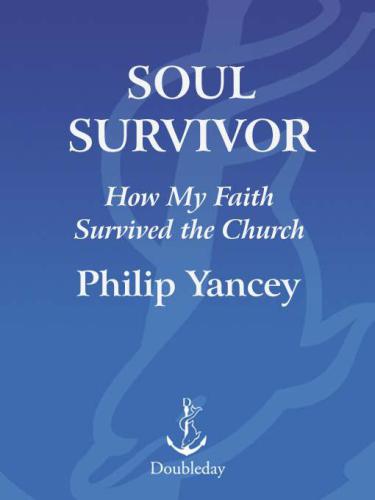
Soul Survivor
How My Faith Survived the Church
کتاب های مرتبط
- اطلاعات
- نقد و بررسی
- دیدگاه کاربران
نقد و بررسی

Starred review from August 13, 2001
Fans of Yancey's bestseller What's So Amazing About Grace?
may not know what to do with this book. In some ways, it is his darkest work ever, chronicling his own lover's quarrel with the institutional church—specifically, the church of his childhood that promulgated racism and practiced a pharisaic legalism. In other ways, this book is one of his most hopeful, for in it he charts a spiritual path through all of the muck made by organized religion. As guides, he looks to "a baker's dozen" of thinkers, writers, doctors and activists who have taught him about Christianity. Martin Luther King Jr.'s life shamed Yancey into confronting his own racism and then helped his heart be transformed by Christ's love. Leo Tolstoy taught him self-forgiveness, while Fyodor Dostoyevsky modeled grace as a lived reality. John Donne taught him to wrestle with the ultimate enemy, death; Annie Dillard demonstrated ways to appreciate God in creation; Mahatma Gandhi showed him the power of one individual to change the course of history. The most moving chapter is perhaps the tribute to Paul Brand, an orthopedic surgeon whose work on leprosy helped Yancey to understand how pain can become a gift from God. It's not a perfect book; the chapter on G.K. Chesterton is too short, and the essay on former Surgeon General C. Everett Koop seems superficial in a book with such theological depth. Despite these minor flaws, this multibiography is a much-needed signpost, stubbornly pointing to the life of faith.

Starred review from September 15, 2001
When a stranger with whom Yancey has struck up a conversation learns that he writes about spiritual themes, the person often offers a "horror story about church," expecting him to defend it. But he replies, "Oh, it's even worse than that. Let me tell you my story." As a youth, he attended a fundamentalist church whose pastor "preached blatant racism" and a Bible college with such stringent rules that he "could spend only the dinner hour" with his future wife. He dispensed with such restrictions and the institutions that promulgate them, but not with his faith. How? In part, by learning from 13 modern people he commends here as models of the abundant life that Christ promised his followers. Each one, he says, was permanently changed by encountering Jesus. They didn't become perfect or even mend personal flaws. Rather, each realized and then taught and lived for the great concerns of Christianity--cheerfulness, justice, grace, truth, humility, healing, compassion. As a journalist, Yancey met and befriended six of his heroes: surgeons Paul Brand and C. Everett Koop, psychologist Robert Coles, writers Annie Dillard and Frederick Buechner, and the late Father Henri Nouwen. The others--M. L. King, G. K. Chesterton, Tolstoy and Dostoyevsky, Gandhi, John Donne, and Japanese novelist Shusaku Endo--he knows primarily through reading. He describes the lives and distinctively Christian impacts of each with great literary skill and compassion as well as admiration.(Reprinted with permission of Booklist, copyright 2001, American Library Association.)

























دیدگاه کاربران